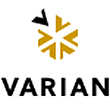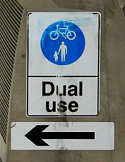 On March 14 the Bureau of Industry and Security (“BIS”) added Maurice Subilia, Walter Lachman and Fiber Materials, Inc. to the Denied Persons List and deprived them of export privileges until November 2015. Fiber Materials hasn’t apparently gotten that news since its web page still lists an “International Sales Office” in Biddleford, Maine.
On March 14 the Bureau of Industry and Security (“BIS”) added Maurice Subilia, Walter Lachman and Fiber Materials, Inc. to the Denied Persons List and deprived them of export privileges until November 2015. Fiber Materials hasn’t apparently gotten that news since its web page still lists an “International Sales Office” in Biddleford, Maine.
Subilia, Lachman and Fiber Materials were sentenced on November 21, 2005 for criminal export violations. Even though BIS participated in the investigation and prosecution of the case, it apparently forgot about the three defendants, which explains the seventeen month delay in adding them to the Denied Parties List.
The story behind the convictions of Subilia, Lachman and Fiber Materials is interesting. The two individuals and the company were convicted of shipping a control panel for a hot isostatic press to India without a BIS license in 1988. At that time, hot isostatic presses were classified under ECCN 1312A. BIS and the Department of Justice argued that the “control panel” was covered because it was a “specially designed . . . component” for a hot isostatic press controlled under ECCN 1312A.
After the defendants were convicted in a jury trial, the judge granted a motion to set aside the verdict on the ground that the language “specially designed” was unconstitutionally vague. The government appealed to the First Circuit Court of Appeals, which reversed holding that the “specially designed” standard was not unconstitutionally vague.
The opinion of the Court of Appeals finding that the phrase “specially designed” was not unconstitutionally vague does so by providing a definition of “specially designed” which arguably is itself overly vague. The court noted that “specially designed” had two possible and separate meanings — either (1) a component that could be exclusively used for the controlled item or (2) a component designed with properties that make it capable of working with the controlled item but also capable of working with items that are not controlled. Because of the broad legislative goal behind the Export Administration Act, the Court held that the second definition, which is both broader and vaguer, applied.
The defendants had shipped the control panel as a part of a hot isostatic press that was of a size that was not controlled by ECCN 1312A and that therefore did not require a license. The prosecution occurred because the control panel could also be used with a larger hot isostatic press that would be covered by the ECCN thereby making it, allegedly, a “specially designed” component for a larger controlled hot isostatic press. The Court of Appeals, by applying the broader definition, affirmed that view; and, as a result, Messrs. Subilia and Lachman are currently wearing ankle bracelets, and Fiber Materials has lost its export privileges.
If that scares you, it should. If that rule is followed, a decision to export an item requires an analysis of whether every component of that item is capable of being used as part of a controlled item. Can the power supply of an uncontrolled item be used for the controlled version? Does it require a license even if the item with which it is being exported does not?
The Court of Appeals vaguely sensed this conundrum and so it tweaked its broader definition somewhat to add an intention requirement:
A device is “specially designed” for use with an embargoed commodity if it is intentionally created for use, and in fact capable of being used, with the embargoed commodity. At the same time, this definition does not extend the embargo to devices simply because they could in theory be used with embargoed commodities, thus ensuring that legitimate exports are not prohibited.
This distinction might have some force in the case of the control panel since there was evidence presented that it had been designed with capabilities that exceeded the requirements of the smaller press. But in many other instances, how is it to be determined whether the device is intended to work with the controlled item or just happens to work with the controlled item? That will be a difficult line to draw and one which the exporter draws at its own peril.
 According to an article by Guy Dinmore in today’s Financial Times, the UAE has escaped the ignominy of being listed on the Bureau of Industry and Security’s forthcoming list of countries “of diversionary concern.” When BIS issued an Advance Notice last month announcing its intent to fill in Country Group C of Supplement 1 to Part 740 with such countries of diversionary concern, we speculated that the UAE was BIS’s prime target.
According to an article by Guy Dinmore in today’s Financial Times, the UAE has escaped the ignominy of being listed on the Bureau of Industry and Security’s forthcoming list of countries “of diversionary concern.” When BIS issued an Advance Notice last month announcing its intent to fill in Country Group C of Supplement 1 to Part 740 with such countries of diversionary concern, we speculated that the UAE was BIS’s prime target.
 Posted by
Posted by  Category:
Category: 

 On March 14 the Bureau of Industry and Security (“BIS”)
On March 14 the Bureau of Industry and Security (“BIS”)  The Office of Foreign Assets Control (“OFAC”)
The Office of Foreign Assets Control (“OFAC”)  At the same time that
At the same time that  The Bureau of Industry and Security (“BIS”) released today a
The Bureau of Industry and Security (“BIS”) released today a 

